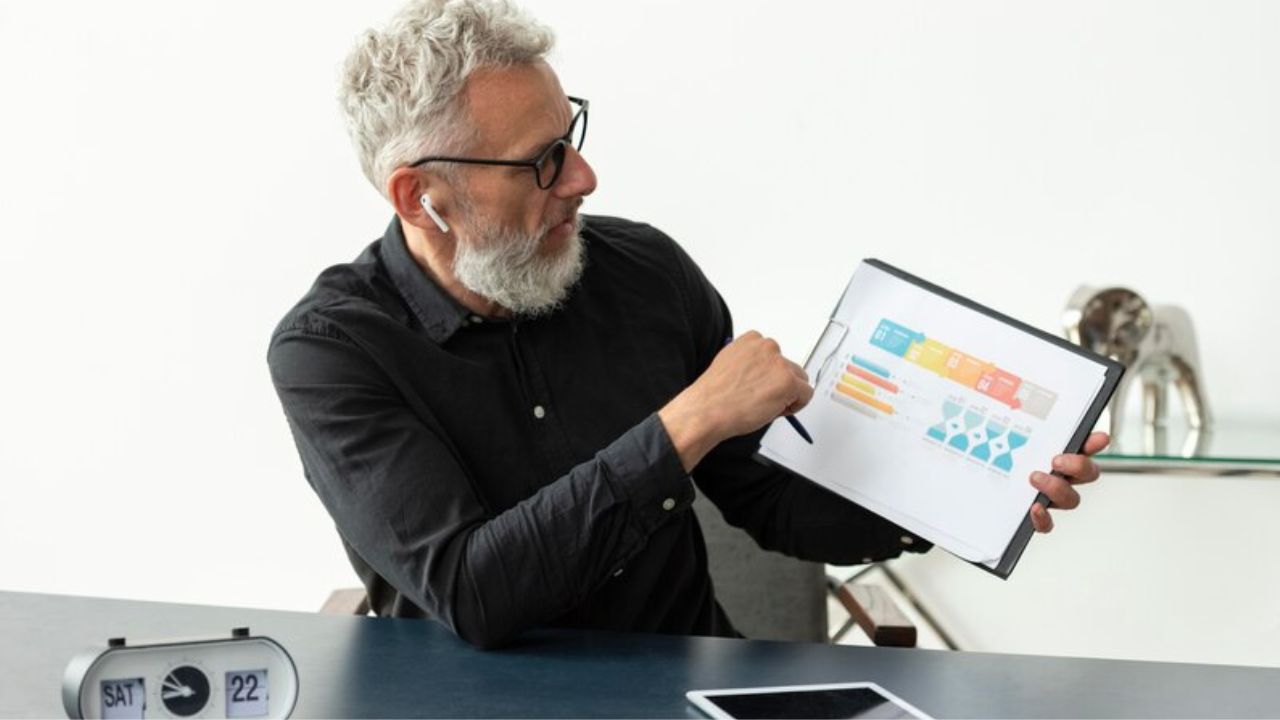DIGITAL MARKETING
The Power of Indoor Advertising: Reach Your Customers Where They Are

Introduction
In today’s fast-paced world, capturing the attention of potential customers amidst a sea of stimuli is more challenging than ever. As marketers explore creative avenues to establish meaningful connections, indoor advertising has swiftly emerged as a potent tool to engage customers where they naturally congregate. This advertising method leverages strategically placed ads in high-traffic indoor settings, ensuring that messages reach and influence target audiences at the heart of their daily activities. As the advertising landscape continues to evolve, indoor advertising offers a refreshing approach, allowing brands to intertwine their messaging seamlessly within the fabric of consumers’ everyday environments.
With the decline of traditional outdoor advertising’s effectiveness, businesses are turning indoors to create an intimate bond with consumers. This transition underscores a profound shift towards creating engagement opportunities within controlled environments where consumers are already at ease. By integrating eye-catching displays in such venues, businesses not only broaden their reach but also amplify the effectiveness of their marketing endeavors. Indoor advertising stands at the intersection of visibility and relevance, giving brands an advantageous position in a highly competitive market.
Strategic Benefits of Indoor Advertising
Indoor advertising presents several strategic benefits distinguishing it from outdoor alternatives, making it a compelling choice for savvy marketers. Foremost among these is its unparalleled access to a diverse audience in locations with high foot traffic. Placing ads in shopping malls, airports, and fitness centers ensures that businesses can capture the attention of various consumers, encompassing varied demographics and interests. Unlike outdoor advertisements, these indoor settings’ stable, controlled environments allow for vibrant, transparent displays not subject to weather interference. This indoor advertising optimizes visibility, effectively making the advertisements more appealing and engaging.
The flexibility of indoor advertising allows for dynamic content updates, which can be executed more efficiently than traditional advertising methods. Brands can tailor their messaging to align with specific times of the day or special events, offering timely relevance that engages viewers more effectively. This adaptability is crucial in an era where consumer preferences and trends can pivot rapidly.
Popular Venues and Locations for Implementation
Choosing prime venues is integral to maximizing the impact of indoor advertising campaigns. High-traffic areas like shopping malls provide an excellent opportunity to connect with a diverse demographic, ranging from young shoppers to families and professionals. The bustling nature of malls ensures that advertisements are seen by a broad spectrum of potential customers, creating numerous engagement opportunities. On the other hand, airports cater to travelers who often have downtime while waiting for flights, making them receptive to marketing messages. These locations offer an ideal setting for brands to reach an audience that is both attentive and looking for engagement during their waiting periods.
Furthermore, fitness centers present unique prospects for targeting health-conscious individuals who may be more interested in particular products or services. By placing strategic advertisements in these environments, brands can forge more profound connections through tailored messaging. The specificity of the venue’s typical audience allows ads to resonate intensely, enhancing their effectiveness.
Understanding Customer Behavior
Effective indoor advertising hinges on understanding customer behavior and how individuals interact with their environments. By analyzing movement patterns and customary practices within a specific venue, businesses can place advertisements in optimal locations that coincide with periods of high attentiveness. High-visibility spots like near escalators, waiting areas, or common walkways are prime locations for capturing audience interest. Recognizing these patterns is essential for designing and placing ads that naturally draw the eye and encourage engagement.
Additionally, considering the mindset of individuals in different indoor settings enhances the relevance and impact of the advertising message. For instance, placing tranquil, wellness-focused ads in a fitness center appeals directly to the consumer’s current mindset, increasing the likelihood of interaction.
The Role of Technology in Indoor Advertising
Technology has revolutionized indoor advertising, adding layers of sophistication and interactivity that capture audience attention more effectively than static displays. Digital signage has become a fundamental component, featuring dynamic and captivating content transcending traditional advertising limitations. These digital displays can integrate touch screens, video content, and interactive elements, engaging customers on a far more personal level. The adaptability of such content allows for real-time updates and targeted messaging, ensuring relevance and impact.
Furthermore, Bluetooth and Wi-Fi technologies empower advertisers to deliver personalized messages directly to consumers’ smartphones as they navigate a venue. These timely and contextually relevant alerts can significantly enhance consumer engagement by offering special promotions or information that aligns with their immediate needs and preferences.
Measuring and Optimizing Advertising Success
For indoor advertising campaigns to flourish, measuring the success and optimizing the strategies employed are pivotal components. By utilizing metrics such as interaction rates, patterns of foot traffic, and resulting sales data, businesses can glean valuable insights into the performance of their advertising efforts. This data-driven approach lets marketers fine-tune their strategies, optimizing ad placements and content to match consumer preferences and behaviors.
The continuous analysis of these metrics allows for strategic adjustments that maximize effectiveness. For instance, experimenting with content formats and positions aligned with data insights can improve engagement and conversion rates. By maintaining a cycle of evaluation and refinement, businesses not only bolster the success of current campaigns but also inform the planning and execution of future advertising endeavors, ensuring sustained marketing effectiveness.
Conclusion
Indoor advertising offers a unique and effective means of engaging with consumers in environments they frequent and feel comfortable in, providing an invaluable opportunity for brands to reach a diverse audience effectively. Businesses can create compelling and relevant advertising experiences that stand out by deploying strategic ad placements and leveraging cutting-edge technology. Understanding consumer behaviors and continually adjusting strategies to optimize engagement is vital in harnessing the full potential of indoor advertising, ultimately driving greater brand awareness and customer interaction. As the dynamics of consumer engagement continue to evolve, indoor advertising remains a versatile and dynamic tool for businesses striving to connect with their audience where they spend their time.
DIGITAL MARKETING
Strategies for Boosting Online Visibility: Tips and Techniques

The Importance of Online Visibility
In today’s digital landscape, ensuring your business has a solid online presence is more critical than ever. With millions of searches conducted daily, visibility on the web can significantly influence your business’s growth. As companies strive to stand out in crowded marketplaces, strategies like those offered by Firestarter SEO become invaluable tools in boosting search engine rankings and increasing overall site traffic. When implemented effectively, these strategies can transform a website’s performance and user engagement.
Being easily discoverable online extends beyond launching a website or maintaining social media profiles. It necessitates a strategic approach to ensure your brand appears prominently when individuals search for your products or services. A strong online presence not only enhances brand credibility but also plays a critical role in capturing the attention of potential clients. Leveraging a comprehensive SEO strategy increases your site’s visibility and reinforces its relevance within the digital sphere.
Key SEO Techniques to Enhance Visibility
Optimizing your website for search engines involves numerous techniques to improve your site’s appeal to search algorithms. Among these techniques, keyword research, on-page SEO, and quality content production are critical components. Continuously updating content to align with evolving SEO standards is essential for maintaining a competitive edge in digital marketing. Each technique complements the others, creating a synergistic effect that can improve search ranking and online visibility.
Keyword Optimization
At the heart of SEO lies the strategic use of keywords—specific terms users enter into search engines when looking for information or services. Comprehensive keyword research allows businesses to tailor their content to match user queries precisely, increasing the chances of appearing in search results. However, keyword optimization is not a one-time task; it requires ongoing analysis and adjustment to remain relevant and practical. As industry trends and user behaviors evolve, regularly updating and refining your targeted keywords ensures your content stays aligned with searcher intent.
The Power of Backlinks
Backlinks, often called inbound links, are a crucial endorsement of your website from external sources. These links signal to search engines that your content is valuable and authoritative, potentially boosting your SEO performance. Establishing relationships with reputable websites and media outlets can provide a steady stream of quality backlinks, enhancing your site’s credibility and visibility.
Acquiring backlinks should be approached as a sustainable, long-term strategy. Engaging in dubious practices, such as purchasing links or participating in link exchange schemes, can lead to severe penalties from search engines. Instead, focus on building genuine partnerships and creating content that naturally attracts high-quality, authoritative backlinks.
Content Quality and Relevance
Producing relevant, engaging, and informative content is paramount to any successful SEO strategy. High-quality content improves user retention, boosts engagement metrics, and is likelier to be shared and linked to by others. This, in turn, increases your site’s visibility and strengthens its position as a leader in your field. To achieve this, focus on crafting content that addresses the interests and needs of your target audience, delivering real value and meaningful insights.
Utilizing Social Media Channels
Social media offers a dynamic and interactive platform for enhancing your online presence. By effectively using social channels, businesses can expand their reach, engage directly with customers, and draw more website visitors. Consistent activity on social media, including posting regular updates, responding to comments, and participating in relevant discussions, can significantly boost your visibility and audience base. By leveraging the unique attributes of different platforms, you can tailor your content and engagement strategies to maximize impact and drive more traffic to your site.
Keeping Up with SEO Trends
The digital marketing landscape is constantly evolving, and staying abreast of the latest SEO trends is essential for any business aiming to maintain a competitive edge. Search engine algorithms are frequently updated to improve user experience and enhance the quality of search results. As a result, it is crucial to regularly review and adapt your SEO strategies based on emerging trends and algorithm changes. By committing to continuous improvement and flexibility, businesses can ensure their SEO efforts remain effective and aligned with current best practices, ultimately driving sustained growth and success in the digital marketplace.
DIGITAL MARKETING
How to Conduct a Social Media Checkup: A Step-by-Step Guide for Beginners

In today’s digital world, social media platforms have become far more than just a means to keep in touch with friends and family. These platforms are powerful tools for personal branding, professional networking, and reputation-building. Conducting a social media checkup is a proactive step towards safeguarding one’s personal brand and a necessity in crafting a coherent digital identity that aligns with personal and professional aspirations. It’s about ensuring that what people find online represents who you are today. Optimizing your social profiles can enhance your career and personal growth with the right guidance and practice. Click here to explore tools and solutions that help businesses perform effective social media screenings, enabling informed decisions and ensuring compliance with privacy regulations.
Why a Social Media Checkup is Essential
Managing your online presence is more critical than ever in an era where digital identities hold significant sway over real-world interactions. Social media profiles often serve as a first impression before a face-to-face meeting occurs, making it essential to curate these spaces actively. They are digital billboards that display your current values, showcase your past achievements, and hint at your future potential. Employers, partners, and clients may peruse your public profiles to gauge your suitability for various opportunities. A well-managed social media presence can result in missed opportunities or misunderstandings, highlighting the importance of a thorough review. A proactive social media checkup ensures that your digital footprint authentically represents who you are now and who you strive to become, grounded in personal and career goals.
Preparation: Gather Your Accounts
The first step to an effective social media audit is identifying the full range of your online presence. This step involves creating a comprehensive list of all your social media accounts, including widely used platforms. It’s about more than just the popular sites; even lesser-known or industry-specific platforms should be included. Each account can offer varying insights into your personality and capabilities, and understanding this helps you manage the breadth of your digital identity. Once you have collated all account details, ensuring access through up-to-date logins will streamline the checking process. This preparation phase lays the groundwork for a thorough audit of your online persona and equips you with the tools necessary to modify and update as needed.
Step 1: Review Your Profile Information
Your profile is often the gateway to your broader personal and professional identity. Start by critically examining each profile’s biographical information to ensure accuracy and relevance. Update your job titles, roles, accomplishments, and skills aligning with your current professional aspirations. Profile pictures should be consistent across different platforms, ideally showing a professional visage that colleagues and potential employers can readily identify. Also, your bio should be able to convey your key strengths and professional journey. Consistency in presentation across platforms reinforces credibility and eases recognition, establishing a coherent identity that reflects your professional and personal qualities.
Step 2: Adjust Privacy Settings
Understanding and adjusting your privacy settings is crucial in controlling who accesses your content. Each social media platform has unique privacy controls, offering varied degrees of protection over your information. Please take a look at these settings regularly to prevent unexpected personal photos, videos, or sensitive information exposure. Decide what should remain private and what you’re comfortable sharing with broader audiences. Protecting sensitive information from public protection protects your privacy and ensures a professional online presence. Remember, well-managed privacy settings help preserve your public image while allowing you to express individuality behind more secure barriers safely.
Step 3: Evaluate Past Content
Your past posts are a digital archive that prospective employers or connections might explore, making it imperative to vet them periodically. Conduct a deep dive into your historical posts, comments, and shared content to ensure they reflect your present-day self and professional standards. Remove or hide anything outdated, irrelevant, or potentially controversial. Consider context and language, as some content might have been acceptable in the past but could be damaging in current circumstances. Intentional curation of past content demonstrates mindfulness and responsibility, enhancing your digital reputation and showing you are attentive to maintaining an image consistent with your current values and goals.
Step 4: Manage Your Network
Social media is as much about the people you connect with as it is about what you post. Therefore, managing your connections is an essential part of the audit process. Assess your existing networks across platforms, focusing on contacts that add value to your professional life. If certain connections no longer align with your goals or could negatively impact your online image, consider unfollowing or muting them. Strengthen positive relationships by engaging with those who inspire or contribute beneficially to your personal and career growth. Building a network of meaningful and professional connections enhances your credibility and opportunities in your chosen field.
Step 5: Implement Continuous Monitoring
Staying proactive in managing your digital presence involves establishing a routine review system. Scheduling quarterly social media audits can ensure your profiles remain up-to-date and reflect any professional or personal growth changes. Additionally, leveraging tools that track mentions of your name or brand across social media can provide real-time insights into how you’re perceived, allowing for quick adjustments. Continuous monitoring is a strategic step in safeguarding your digital reputation and helps you remain vigilant about your public personas’ alignment with your evolving professional narrative.
Professional’s Tips for a Proactive Online Presence
Beyond regular audits, additional strategies to amplify your social media presence exist. Consider actively sharing content that enhances your brand and showcases your expertise, such as articles you’ve written, achievements, or engagements in industry-specific discussions. Engage with your audience by participating in meaningful conversations, which increases visibility and projects authority within your field. According to a Forbes article, strategically using social media to display active participation in thought leadership can significantly widen professional appeal and open doors for opportunities.
DIGITAL MARKETING
How Custom Media Blasting Can Improve Your Project Quality

Introduction to Custom Media Blasting
Custom media blasting is an advanced technique in numerous industries to clean, prime, and enhance surfaces. Its precision and effectiveness offer a reliable solution for removing old coatings, contaminants, and residues from various surfaces. This method can significantly impact project quality by improving material properties and appearance, leading to longer-lasting results and improved structural integrity. The utility of media blasting solutions, as offered by platforms like Media Blast Airblast AFC, is vast, making it a critical component in advanced surface preparation.
Benefits of Custom Media Blasting
One of the primary advantages of custom media blasting is its significant enhancement of material durability. Over time, surfaces naturally degrade due to environmental exposure and wear. Media blasting actively combats this degradation by removing impurities and improving surface texture, ensuring that coatings adhere more effectively. This leads to fortified surfaces that are resilient against potential damage. Consequently, media blasting can reduce the frequency of necessary repairs and maintenance, ultimately lowering project costs over the long term.
Standard Techniques and Media in Use
The selection of blasting media—ranging from abrasive grains to glass beads or specialized abrasives—plays a crucial role in the effectiveness and outcome of a media blasting project. Techniques such as dry blasting, wet blasting, and vapor blasting each offer unique benefits suited to different project requirements. Dry blasting is known for its speed and efficiency, making it a popular choice for removing harsh contaminants. Wet blasting, on the other hand, combines water with abrasive materials to minimize dust and improve safety during the process. Vapor blasting refines this further, adding more water to reduce friction and create a smoother finish, making it ideal for precision work.
Applications Across Various Industries
Media blasting finds applications across various industries, demonstrating its versatility and efficacy. In the automotive sector, it is frequently employed for paint removal, rust elimination, and meticulous surface preparation, ensuring vehicles maintain longevity and aesthetic appeal. In aerospace, spotless parts free from residues are critical for safety and functionality, making media blasting an invaluable procedure. The construction industry also benefits from media blasting in the cleaning and maintaining concrete surfaces, contributing to the structural integrity and visual quality of buildings and infrastructure.
Best Practices for Achieving Exceptional Results
Adhering to best practices is imperative for harnessing the full potential of media blasting in any project. Proper selection of media type is crucial and should be aligned with the intended finish and material properties. Additionally, adjusting equipment settings to suit the specific media used can significantly impact project results. Employing experienced technicians adept at handling the intricacies of media blasting ensures that the process is executed precisely. Staying informed about the latest technological advancements in media blasting can introduce new methodologies that improve efficiency and quality, further enhancing project outcomes.
Environmental and Safety Considerations
Environmental and safety considerations are paramount when conducting media blasting operations. Implementing eco-friendly practices, such as recyclable media and effective dust suppression techniques, can mitigate ecological impact. Ensuring workers are equipped with appropriate personal protective equipment (PPE) and adhere to established safety protocols is vital to preventing occupational hazards. By prioritizing these considerations, media blasting processes can be carried out safely and sustainably, benefiting both the project and the surrounding environment. Balancing productivity with responsibility contributes to the success and sustainability of media blasting projects, ensuring they deliver quality results without compromising safety or ecological integrity.
-

 BLOG9 months ago
BLOG9 months agoTribute Printed Pics: Top 10 Ways to Honor Loved Ones
-

 NEWS8 months ago
NEWS8 months agoNEWS JoTechGeeks: How to Stay Updated with the Latest News
-

 BLOG6 months ago
BLOG6 months agoThe //Vital-Mag.net Blog: Your Daily Dose of Inspiration
-

 ENTERTAINMENT9 months ago
ENTERTAINMENT9 months agoFreemoviesfull.cc: Ultimate Guide
-

 HEALTH9 months ago
HEALTH9 months ago2023-1954: Enhancing Health and Vitality
-

 TECH8 months ago
TECH8 months agoWww abithelp .com: Your Ultimate Online Assistance Platform
-

 HEALTH8 months ago
HEALTH8 months agowww healthsciencesforumcom: A Trusted Health Sciences Platform
-

 TECH9 months ago
TECH9 months agoWebtoon XYZ: A Journey into the World of Digital Comics
